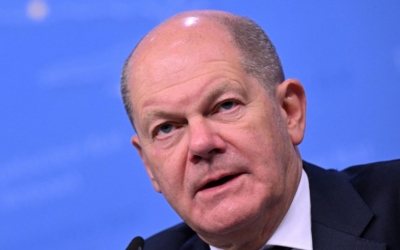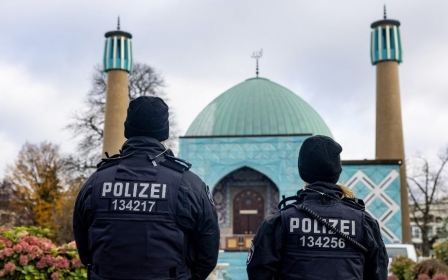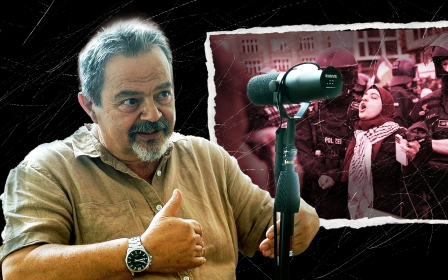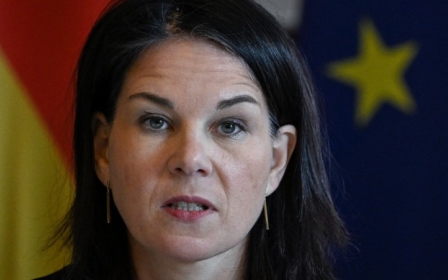Germany's weaponised fight against antisemitism is eroding democracy
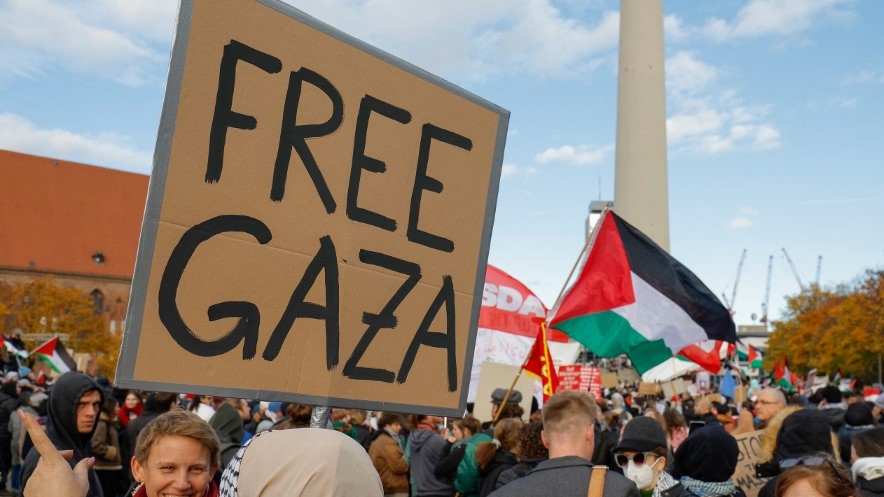
The German parliament is preparing to pass a resolution titled “Never again is now: protecting, preserving and strengthening Jewish life in Germany.”
What sounds like a noble goal threatens to erode the democratic fabric of our society, which helps to guarantee the protection of vulnerable individuals in the first place.
Parliamentarians aim to pass the resolution ahead of 7 October - no specific date has been set for the vote as yet - to send a sign of solidarity to Israel on the first anniversary of the Hamas attack.
The move has fuelled debate within Germany. Civil society groups, artists and academics, myself included, have criticised the draft resolution in an open letter. We are particularly worried about the threat it presents to freedom of speech, alongside academic and artistic freedoms, while failing to achieve the goal it rightly sets itself.
The draft resolution recommends adopting the International Holocaust Remembrance Alliance (IHRA)’s definition of antisemitism as the standard for evaluating state funding requests and determining whether a project is antisemitic.
New MEE newsletter: Jerusalem Dispatch
Sign up to get the latest insights and analysis on Israel-Palestine, alongside Turkey Unpacked and other MEE newsletters
This raises concerns due to the broad and ambiguous nature of the IHRA definition, which can deem criticism of Israeli policies as antisemitic. Even Kenneth Stern, one of the definition’s original authors, has distanced himself from it, warning of its potential for political misuse and the risk of stifling legitimate debate.
The draft resolution proposes comprehensive measures supposedly aimed at combatting antisemitism, as defined by the IHRA. It calls on the government to look at new steps to ensure state funds are not “used for antisemitism”, suggesting that funding applications from civil society groups should be scrutinised to prevent the spread of “antisemitic narratives”.
Ulterior motive
Lawmakers from various parties have suggested that, if required, intelligence agencies could be involved in assessing whether a project promotes antisemitism.
This is particularly worrying for several reasons. It exploits the important need to combat antisemitism with a potential ulterior motive of stifling dissent. It could result in allocating funding for research and cultural work based on one’s positioning towards Israeli politics.
Follow Middle East Eye's live coverage of the Israel-Palestine war
This type of ideological screening is incompatible with academic freedom. Prescribing a definition of antisemitism that bars criticism of Israeli policies would have a detrimental impact on research.
At a time when Germany needs more, not less, knowledge about Israel, Palestine and the Middle East conflict, this resolution could discourage scholars and artists from taking up these topics for fear of being labelled antisemitic.
By attempting to stifle criticism of Israeli policies at a time like this, Germany is making itself ever-more complicit in unspeakable war crimes
In addition, the resolution urges parliament to utilise “repressive measures” with respect to residency, asylum, nationality and criminal laws, to combat antisemitism. It states that in academic settings, antisemitic behaviour should be sanctioned, including the expulsion of students in severe cases.
If implemented, this means that people could lose their right to asylum, have their road to citizenship blocked, or have their residence permit revoked for speech or acts deemed antisemitic under the IHRA definition.
Students could be expelled for arranging protest camps in solidarity with Palestine, with such gatherings often denounced as antisemitic.
Indeed, the draft resolution highlights a troubling trend: since 7 October, it has become increasingly evident that our society lacks the skills to engage in controversial debates. As a result, the primary political response to such debates has been to ban, punish and criminalise dissenting voices.
Opposite effect
While the draft resolution’s ostensible aim is to protect the diversity of Jewish life in Germany, it may achieve the opposite. Jewish artists and academics who have expressed solidarity with Palestinians or criticised Israel’s war on Gaza have faced severe repercussions, including contract terminations, revoked invitations to exhibitions, and other forms of repression.
If adopted in its current form, the resolution is likely to increase pressure on Israeli and Jewish voices that diverge from the German parliament’s official stance.
A genuine effort to preserve and protect Jewish life, and to honour the diversity of Jewish voices in Germany, would begin with democratising the allocation of state funding. For example, state funding for 2024 for the Central Council of Jews, a socially conservative organisation supportive of the current Israeli government, was increased to 22 million euros ($24m) from 13 million.
In stark contrast, liberal Jewish groups critical of the Israeli government, such as Jewish Voice for Just Peace in the Middle East, receive no state funding and face repression.
This past March, a state-owned bank froze the organisation’s account, and last autumn, one of the group’s board members was briefly detained in Berlin for carrying a sign that read: “As a Jew and Israeli: stop the genocide in Gaza.”
The draft resolution follows a broader scandal around academic freedom in Germany. Earlier this year, a group of academics, including myself, signed an open letter criticising the police dismantling of a protest camp at the Free University of Berlin, and calling for the protection of students’ right to peaceful protest.
In response, the German education ministry accused the signatories of promoting violence and antisemitism. Leaked emails have since revealed that the ministry was exploring whether funding could be withdrawn from academics who signed the letter, although the ministry later said there would be no further consequences.
Out of touch
These revelations have sent shockwaves through the scientific community, reinforcing fears that funding decisions may be influenced by political considerations rather than based on academic merit. The draft resolution further undermines confidence in the impartiality of state support for academia. This is particularly relevant in Germany, as academics are increasingly dependent on third-party funding.
The draft resolution is being proposed by the Green Party, the Social Democrats, the Christian Democrats and the Liberal Democrats. Considering the far-right’s recent gains in state elections in eastern Germany, many had expected threats to academic freedom, free speech and the arts to come primarily from the extreme right.
The past year, however, has shown that many repressive measures are pushed by parties in the political centre. The so-called democratic centre should be cautious not to pave the way for the far right; once mechanisms such as those proposed by the draft resolution are established, they could easily be used to target other political opponents.
German political debate has fallen out of touch with reality. A case alleging that Israel is committing genocide in Gaza is currently pending before the International Court of Justice. The situation in Gaza is apocalyptic, with tens of thousands of civilians dead and missing, thousands of children orphaned, and now at risk of contracting polio.
Palestinians in Gaza are being starved to death, amid numerous reports of physical and sexual abuse of Palestinian prisoners.
By attempting to stifle public debate and much-needed criticism of Israeli policies at a time like this, Germany is making itself ever-more complicit in unspeakable war crimes and possibly genocide.
Ultimately, the Staatsrason - Germany’s “reason of state”, which entails the protection of Israel as part of its atonement for past atrocities - is incompatible, in its current interpretation, with a modern democratic country.
If we wish to be an open society and acknowledge our own diversity, we cannot cling to the Staatsrason in its current form, which prevents us from acknowledging the suffering of all - denying their history and experience - thus feeding a perpetual cycle of violence.
The views expressed in this article belong to the author and do not necessarily reflect the editorial policy of Middle East Eye.
Middle East Eye delivers independent and unrivalled coverage and analysis of the Middle East, North Africa and beyond. To learn more about republishing this content and the associated fees, please fill out this form. More about MEE can be found here.



